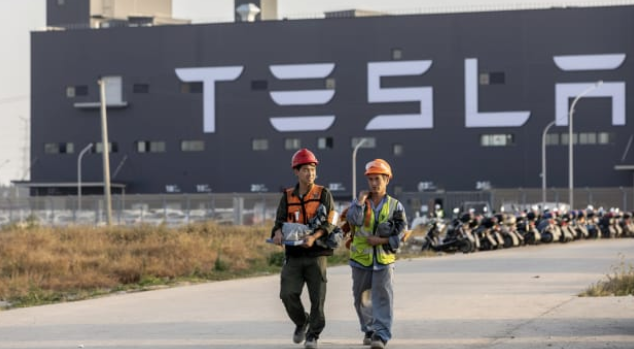
Tesla Gigafactory workers have been struggling with workplace safety issues, a local housing shortage, and even a lack of bathrooms at work, according to a new report by USA Today.
After the state of Nevada gave Tesla tax breaks and other incentives to set up a massive battery plant there in 2014, Elon Musk’s electric car company has created jobs outside of Reno, and drawn new residents to the area. But the company’s growing presence has also stressed local systems so much that some are asking if the deal was worth it, according to the report.
Analysis of 911 call and Occupational Safety and Health Administration inspection records by USA Today claimed injuries at Gigafactory are routine — “at least three a month” — but not all injuries are reported as required by law. A former employee named Lane Dillon, now a student at Georgia Institute of Technology, lost part of his index finger working at the Gigafactory in 2017, he said. But that amputation was not reflected in OSHA’s records because Tesla did not report it, he told USA Today.
Tesla employees reportedly called 911 more than once a day on average in 2018, and some calls concerned possibly avoidable and grisly incidents, like “head injuries from unsecured construction debris blowing off the roof in a windstorm, and people falling through holes in the floor.” During a chemical spill at the plant, Tesla managers were not helpful to emergency response teams, and evacuation procedures were haphazard, the report says.
Tesla previously under-reported injuries at its Fremont, California, car assembly plant, according to a report last year in Reveal.
OSHA fines are generally small, relative to the tens of millions that Tesla and CEO Elon Musk had to pay as part of an S.E.C. settlement. The company has paid $26,900 for workplace safety violations at the Gigafactory since 2017, according to Tuesday’s report, often negotiating a lower fine after reporting an injury or safety issue.
Tesla told USA Today in a statement that a few isolated incidents were not representative of its overall safety culture. “Tesla, our suppliers, and our contractors make up over 10,000 people on-site — the size of a small city,” the statement said. “To report that both personal and work-related medical emergencies over the course of four years make Tesla an outlier is unfair and misleading.” Tesla did not respond to CNBC’s request for comment.





























